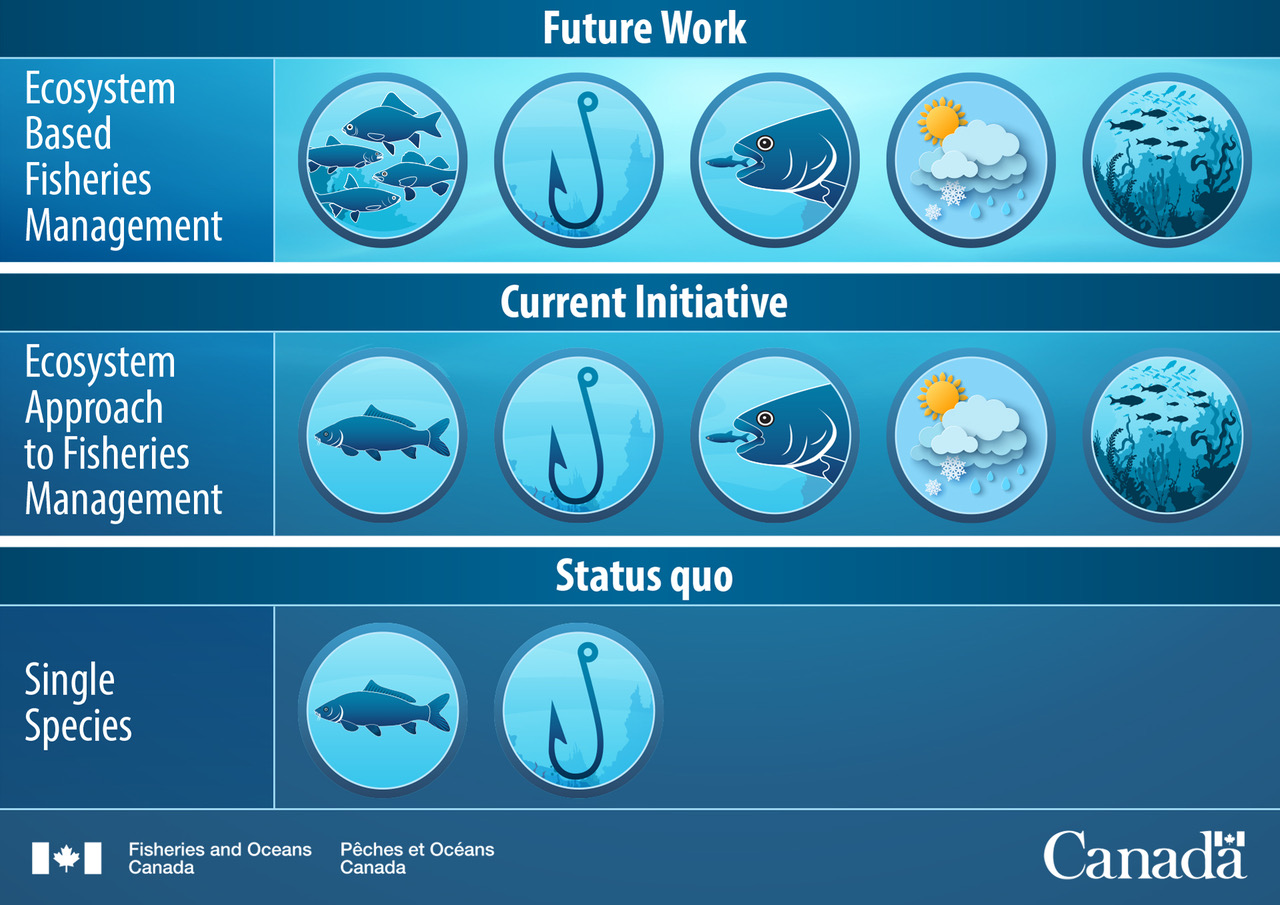Introduction to stock assessment
Unit 1.1: Canada's approach to fisheries science
Canada currently takes a single-species approach to stock assessment. This approach looks at the impact of fishing on 1 species at a time. The results only inform management decisions about the fishery in question.

Long description
An infographic depicting the spectrum of fisheries management strategies. Different icons are used to explain what variables are considered in ecosystem-based fisheries management, an ecosystem approach to fisheries management, and single-species fisheries management.
Ecosystem-based fisheries management
- expands the scope of the management of commercial fisheries to include simultaneous management of multiple species
- incorporates ecosystem variables such as water temperature, predator-prey dynamics, and habitat
Ecosystem approach to fisheries management
- includes the management of commercial fisheries on a species-by-species basis
- incorporates ecosystem variables such as water temperature, predator-prey dynamics, and habitat
Single-species management
- includes the management of commercial fisheries on a species-by-species basis
All credible ecosystem and multispecies approaches are built upon decades of peer reviewed single species work. All three approaches have strengths and weaknesses that contribute collectively to an improved understanding of fisheries.
DFO is moving towards an ecosystem approach to fisheries management. It will:
- promote a sustainable, economically viable, internationally competitive fishing industry
- improve the management of Canadian fisheries by enabling more informed decision making
- align with the global shift towards ecosystem approaches to fisheries management
- help respond to the challenges of climate change and other important ecosystem-level changes on fish stocks
- help meet policy obligations, international commitments, eco-certification requirements, and international trade requirements for sustainable fisheries
- respond to consumer demand for sustainable fisheries
- Date modified: